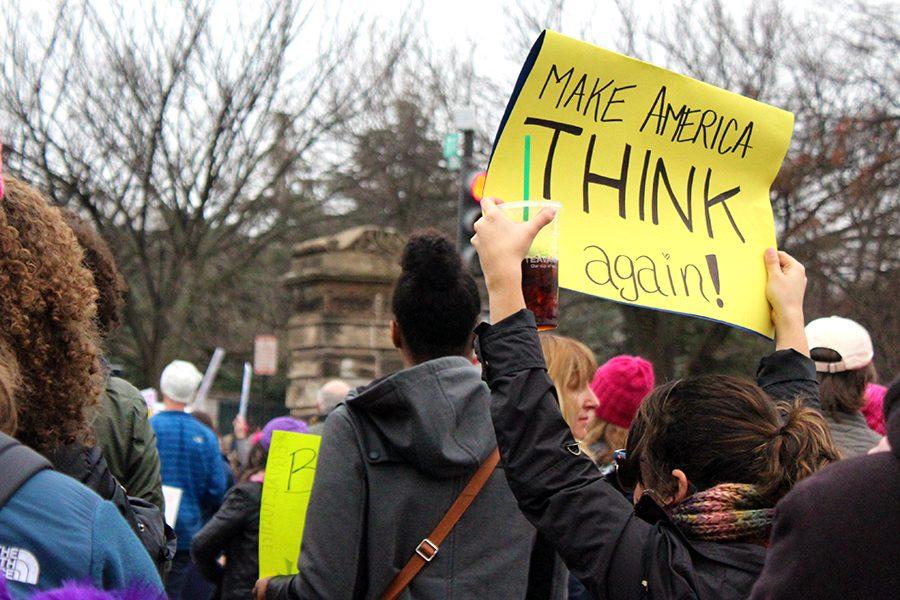International Women’s March Seeks Equality
Thousands of men and women overtook Washington Square Park Jan. 21 to protest for women’s rights.
PHOTO | Clare Kimmis
A protestor in Washington D.C. holds a sign in protest during the Women’s March. The march in Kansas City was an extension of the main march in Washington D.C.
The Women’s March held Saturday Jan. 21 in Washington Square Park attracted all people advocating the same thing: women’s rights.
As an extension of the women’s march held in Washington D.C., the march in Kansas City was one of the many marches held around the world standing up in favor of women regarding issues such as equal pay, sexism, racism, homophobia and more. Senior Clare Carey attended the march in Kansas City to ensure that her voice would be heard among these issues.
“Since I couldn’t vote, I want to do my part to speak up about injustice,” Carey said. “I want to see people who are role models and lovers of all people.”
According to CNN, the march held in D.C. drew in over an estimated 1 million, while international cities such as London had around 100,000. According to the Kansas City Star, Kansas City had an estimated 5,000.
The rally in Kansas City kicked off with a singing of the national anthem, followed by an introductory welcome from Kansas City Mayor Sly James. He said he was proud of his city and in the turnout of the event. Some speakers included Rabbi Doug Alpert on religious freedom, Sheila Styron on disability rights and Taylor Hirth on sexual assault.
“They were a good mix of many different issues our nation faces right now,” junior Clare Lappin said. “Their experiences resonated with most if not the whole crowd.”
Influenced by the election results, the issue of whether or not women’s rights would be a priority in President Donald Trump’s office was recurring throughout the march. This was the inspiration for the start of the original march in D.C., according to the official Women’s March on Washington’s website.
“It was more establishing on the first day of his presidency that his previous words and actions towards women and other minorities will not be tolerated,” senior Grace Snider said.
According to Snider, the march sought more than to just bring awareness of these issues. She said it calls for immediate action and resolutions for women and minorities around the world.



